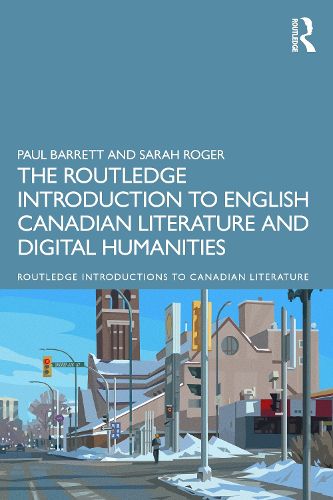Readings Newsletter
Become a Readings Member to make your shopping experience even easier.
Sign in or sign up for free!
You’re not far away from qualifying for FREE standard shipping within Australia
You’ve qualified for FREE standard shipping within Australia
The cart is loading…






The Routledge Introduction to English Canadian Literature and Digital Humanities is a guide to the concepts and theories at the intersection of Canadian literary studies and digital humanities (DH). Equal parts theoretical and practical, it focuses on debates that overlap the two domains. This book historicizes the connections between the two by surveying the history of DH in Canada, the tradition of Canadian writers engaging with technology, and DH analyses of Canadian literature. It also situates both CanLit and DH with respect to contemporary concerns about alterity, and it demonstrates how digital technologies allow writers and scholars to intervene in them.
This book complements its theoretical discussions with a practical introduction to DH methods. Using Canadian literary texts and examples from projects at the intersection of CanLit and DH, it introduces key DH approaches to novice readers. Topics covered include data collection, data management, and textual analysis, as well as essential DH tools and the Python programming language. A concluding case study guides readers interested in applying the ideas presented throughout.
$9.00 standard shipping within Australia
FREE standard shipping within Australia for orders over $100.00
Express & International shipping calculated at checkout
The Routledge Introduction to English Canadian Literature and Digital Humanities is a guide to the concepts and theories at the intersection of Canadian literary studies and digital humanities (DH). Equal parts theoretical and practical, it focuses on debates that overlap the two domains. This book historicizes the connections between the two by surveying the history of DH in Canada, the tradition of Canadian writers engaging with technology, and DH analyses of Canadian literature. It also situates both CanLit and DH with respect to contemporary concerns about alterity, and it demonstrates how digital technologies allow writers and scholars to intervene in them.
This book complements its theoretical discussions with a practical introduction to DH methods. Using Canadian literary texts and examples from projects at the intersection of CanLit and DH, it introduces key DH approaches to novice readers. Topics covered include data collection, data management, and textual analysis, as well as essential DH tools and the Python programming language. A concluding case study guides readers interested in applying the ideas presented throughout.